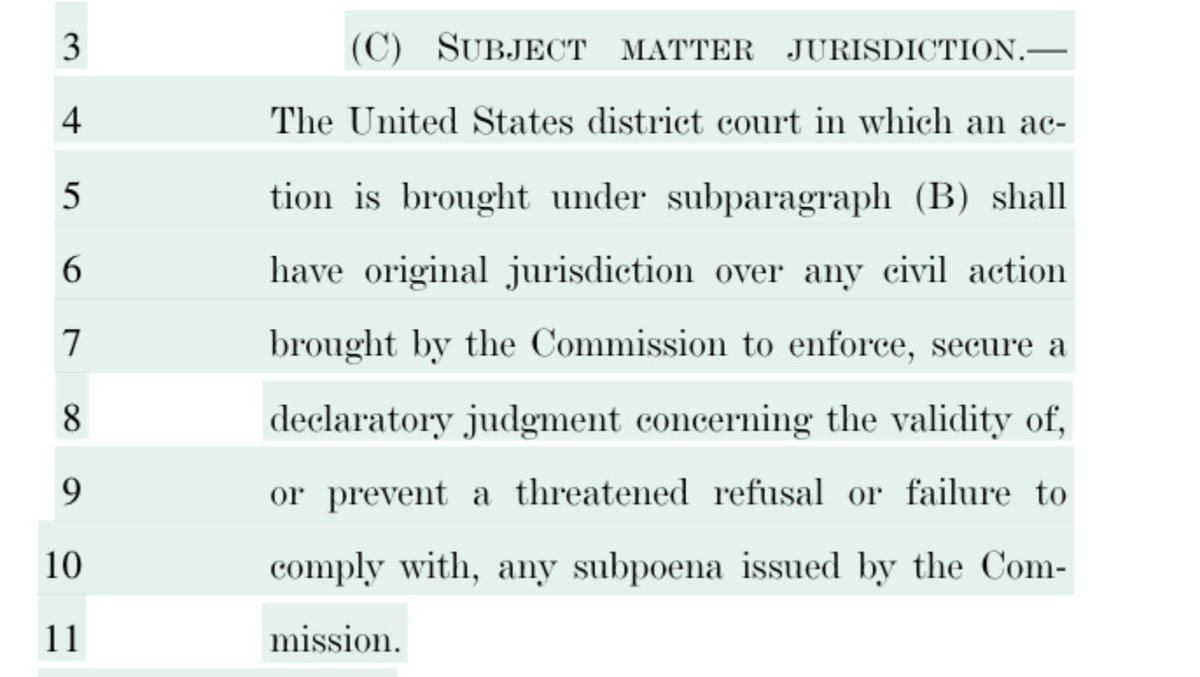
1/ Congress releases new draft legislation to form January 6 Commission. I'm reading through for what's new/significant since Pelosi's last draft.
https://twitter.com/just_security/status/1393203310178586625
2/ First big change is it removes the language on Congress's findings so far, Section 4 in Pelosi's draft, that referred to prior testimony from folks like FBI Director Wray that acknowledged threat of extremism. New draft moves straight into functions of the Commission.
3/ Second (and most substantial) change is that it reduces the number of Commissioners to 10 from 11. The Speaker of the House and the Senate Majority Leader choose the Chairman, rather than the President. 

4/ The Vice Chairperson (appointed by Republicans) gets subpoena power- this is consistent with Pelosi's concession. 

So, biggest differences from last draft:
1- President Biden has no role in choosing the chairman or commissioners.
2- Republicans get subpoena power.
1- President Biden has no role in choosing the chairman or commissioners.
2- Republicans get subpoena power.
My BIG CONCERN: THE DEADLINE. We've lost months. This Commission would only have 4-5 months to function if the deadline remains 12/31/2021.
Amending this to clarify the subpoena power. Not quite right to say Vice Chair gets power. Commission can issue subpoena by agreement of Chair and Vice Chair, or by majority. So, a path for Vice Chair to issue subpoena with agreement of Chair or majority. 

• • •
Missing some Tweet in this thread? You can try to
force a refresh






